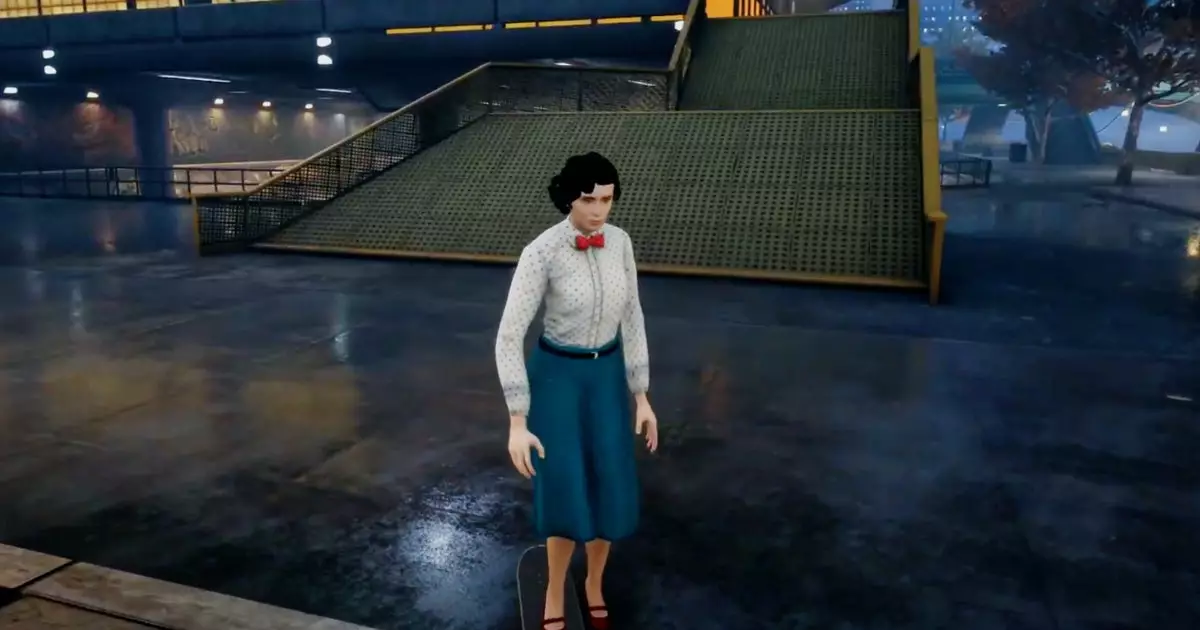The recent launch of Tony Hawk’s Pro Skater 3+4 marks more than just a nostalgic return to classic skateboarding; it signifies a pivotal shift in how dedicated communities reshape beloved games. The fact that early access allowed modders to dive in days before the official release has transformed the gaming landscape, turning a straightforward skating experience into a canvas of limitless creativity. It’s no longer just about nostalgic gameplay—it’s about reimagining the possibilities within that universe and unleashing a community’s artistic flair. This shift suggests that developers—once gatekeepers of content—are now merely facilitators, fostering a new era where players aren’t just consumers but also curators and creators.
The modding community’s rapid response underscores an important truth: games with robust modding tools or open architectures tend to thrive far beyond initial expectations. Here, creative individuals like Huckleberrypie are elevating the game from a simple recreation of ’90s and early 2000s skateboarding action to a platform where nearly anything can happen. Their character swaps—be it Terry Honk dressed as Barbie’s protagonist or Tony Soprano cruising on his gang’s turf—highlight a fascinating blending of pop culture and gaming—a mashup where anything goes. These mods don’t just serve as fun novelties; they transform the game into an interactive art piece, encouraging players to forge their own narratives and worlds.
The Limitless Realm of Customization: From Classic to Surreal
What stands out most is how these modifications serve as a testament to human imagination. The presence of characters from Mafia, GTA, Frozen, and even Mary Poppins demarcates a significant cultural crossover. Yet, beyond the humor and absurdity, this community-driven customization prompts a deeper question: what does it say about the relationship between gamers and their cultural touchstones?
One of the most captivating mods is Mary Poppins—reimagined as a skating superheroine, tearing through parks with a whimsical backstory. Her narrative, woven with a touch of melancholy and resilience, elevates the mod from mere parody to a storytelling device. It exemplifies how modders infuse personality and emotion into virtual personas, turning simple character swaps into immersive narratives that can evoke genuine affection. The fact that Mary is depicted as turning to skateboarding after personal turmoil shows a clever blend of humor and human depth, a testament to the community’s capacity to craft meaning from absurdity.
Furthermore, the inclusion of mods related to gameplay enhancements—like custom restarts, roam cameras, and quick load times—demonstrates the community’s ongoing desire to refine and optimize the experience. These tweaks serve as a reminder that the game’s core mechanics are only the foundation; what truly makes a game memorable is the community’s commitment to shaping every aspect of its playability and aesthetic. This collaborative ethos drives the game beyond its initial design, ensuring longevity and relevance in a fiercely competitive market.
The Cultural Significance of Cross-Genre and Cross-Storytelling
The proliferation of these creative mods reveals a fascinating cultural phenomenon: the convergence of high-brow and low-brow entertainment, blending iconic characters from serious narratives with lighthearted skateboarding. Could Mary Poppins, a symbol of whimsy and nostalgia, genuinely outshine Tony Hawk in a skateboarding competition? The playful speculation reflects a broader trend of game culture embracing humor, absurdity, and nostalgia as core elements of community identity.
This cross-pollination of genres and stories not only enriches the gaming experience but challenges traditional notions of fidelity and authenticity. It invites players to question what makes a character iconic and why they can’t, or shouldn’t, be seamlessly integrated into entirely different worlds. These mods underscore that the essence of gaming lies in its flexibility and the freedom to remix narratives, characters, and aesthetics according to personal or collective whims.
In essence, Tony Hawk’s Pro Skater 3+4’s vibrant modding scene isn’t just about fun or nostalgia; it’s a powerful statement on the evolution of game culture. When players become creators, the boundaries between game design and community expression blur, fostering a richer, more dynamic relationship with digital worlds. This new chapter heralds an exciting future where gaming is not merely about the game itself but about the stories and identities we craft within it—boundless, playful, and utterly creative.


Leave a Reply